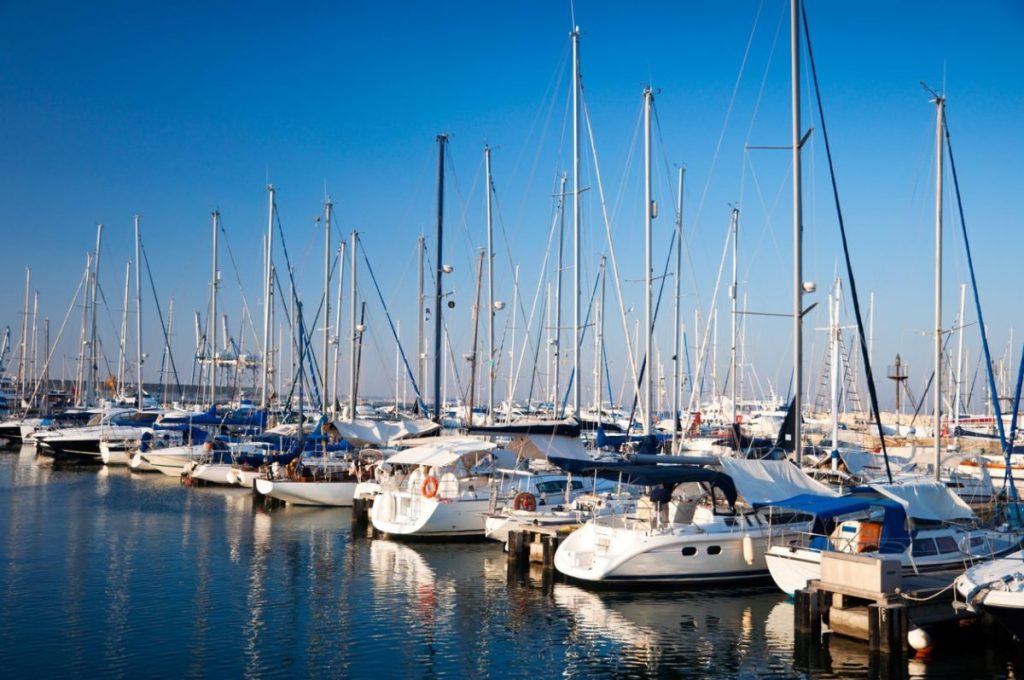Many marinas have inadequate risk management procedures in place, and new risk exposures to marinas continue to arise. Today, more than ever, we need sound risk management programs and marina insurance to prevent and assist with exposures and liabilities.
When crafting your marina’s risk management plan, there are several key areas that are important to address.
Fires
Prevent the threat of fires from the heavy presence of combustible materials (such as fiberglass, wood, rubber, and petroleum-based products), and the common practice of rack, dry stack or nestled storage of boats.
Adhere to the National Fire Protection Association (NFPA) requirements that fire detectors be installed in interior and covered locations where boats are stored and repaired unless a fixed sprinkler system exists. Use state-of-the-art surveillance and security systems to protect all facilities and inventory.
Natural Disasters
Natural disaster risks can be managed by using qualified marine engineers and contractors who are experienced in the construction and renovation of marina facilities and docks. These individuals should be familiar with the Uniform Building Code and Building Officials and Code Administrators standards and adequately insured.
Environmental Factors
Control pollution and environmental risks and liabilities by complying with all relevant U.S. environmental laws. It is important that marina personnel are educated on subjects including liquid material management, petroleum control, stormwater runoff control, and shoreline stabilization.
Stay up on various initiatives developed by the U.S. Environmental Protection Agency, such as the “Clean Marinas – Clear Value” project.
Maintenance
A regular ongoing maintenance schedule for the marina is crucial. Check, secure and replace dock planks as needed. Re-secure and fasten cleats regularly. Tighten screws and nails. Make sure safety signs are in good condition and visible. Check electrical connections and cords for wear, repairing and replacing when conditions warrant. Check power terminals for proper grounding and polarity after the winter. Check water pressure for the right levels. Inspect, lubricate and maintain all heavy equipment and machinery according to the manufacturers’ specifications.
Protection
Maintain proper and adequate marina insurance. Rely on an insurance professional experienced in marinas to assess the marina’s operations, risks and coverage requirements. Factors which will be considered include:
- Marina size and location
- Physical structure (including floating docks, number of buildings and whether any are on pilings)
- Type and age of machinery and equipment used
- Inventory of boats and watercraft
- Scope of operations (such as repair and maintenance, fuel and waste station, boat dealership, store, restaurant, pool, and more).
By implementing basic risk management strategies along with maria insurance, you can minimize accidents and contain related losses and costs.
An experienced marina insurance agent can provide the following coverages:
- Hull & Liability Coverage for Yacht Club Fleet – boats owned, borrowed by, loaned to or rented by the club for use in your normal club operations
- Regatta Liability
- Sailing School Training
- Chartering
- Member Property
- Facility and Grounds Coverage
Other coverages are available depending on your needs, such as Pollution and Oil Spill, Workers’ Compensation, Race Management Errors & Omissions, Directors & Officers Liability, Jones Act coverage for employees working on the water, and more.
About Mariners Insurance
Mariners General Insurance Group was founded in 1959 to protect boat owners and marine business clients. We are marine insurance experts and insure boats worldwide – in every ocean on the planet. Marine insurance is critical if you own a boat or nautical business. Trust the professionals with all of your Boat Insurance needs – trust Mariners Insurance. Call us at (800) 992-4443 any time you have questions or concerns about insurance for your vessel or marine business.



